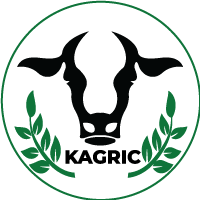Skills Development in Agriculture
In the ever-evolving field of agriculture, skills development plays a crucial role in ensuring the success and sustainability of farming practices. As new technologies and techniques continue to emerge, it is essential for farmers and agricultural professionals to continually update their skills and knowledge to stay competitive and adapt to the changing landscape of the industry.One of the key areas of skills development in agriculture is technological proficiency. With the advent of digital agriculture, farmers are now able to utilize cutting-edge technologies such as precision farming, drones, and data analytics to optimize their operations. These technologies require a certain level of technical expertise, and farmers need to acquire the necessary skills to effectively use them. Training programs and workshops on digital agriculture can help farmers understand the potential benefits and applications of these technologies and equip them with the skills to implement them on their farms.Another important aspect of skills development in agriculture is sustainable farming practices. As the world grapples with environmental challenges such as climate change and resource scarcity, there is an increasing need for farmers to adopt sustainable and regenerative farming methods. Skills development programs focused on sustainable agriculture can educate farmers on practices such as organic farming, crop rotation, water conservation, and integrated pest management. These programs can also provide guidance on how to reduce the use of chemical inputs and adopt alternative methods that are environmentally friendly and economically viable.In addition to technological proficiency and sustainable farming practices, skills development in agriculture also encompasses business and management skills. Running a successful farm requires not only agricultural expertise but also the ability to manage finances, market products, and make strategic decisions. Training programs and workshops on farm management can help farmers develop skills in budgeting, marketing, record-keeping, and risk management. These skills are essential for farmers to effectively manage their operations, maximize profits, and navigate the challenges of a competitive market.Furthermore, skills development in agriculture extends beyond the farm level. It also includes capacity building for agricultural extension workers, researchers, and policymakers. These professionals play a crucial role in disseminating knowledge, conducting research, and formulating policies that support sustainable agriculture and rural development. Training programs and workshops can enhance their skills in areas such as data analysis, research methodologies, extension techniques, and policy analysis. By equipping these professionals with the necessary skills, they can better support farmers and contribute to the overall growth and development of the agricultural sector.In conclusion, skills development is essential for the advancement of agriculture. From technological proficiency to sustainable farming practices and business management skills, continual learning and training are crucial for farmers and agricultural professionals to stay competitive and adapt to the changing demands of the industry. By investing in skills development, we can ensure the long-term success and sustainability of agriculture while addressing the challenges and opportunities of the future.
